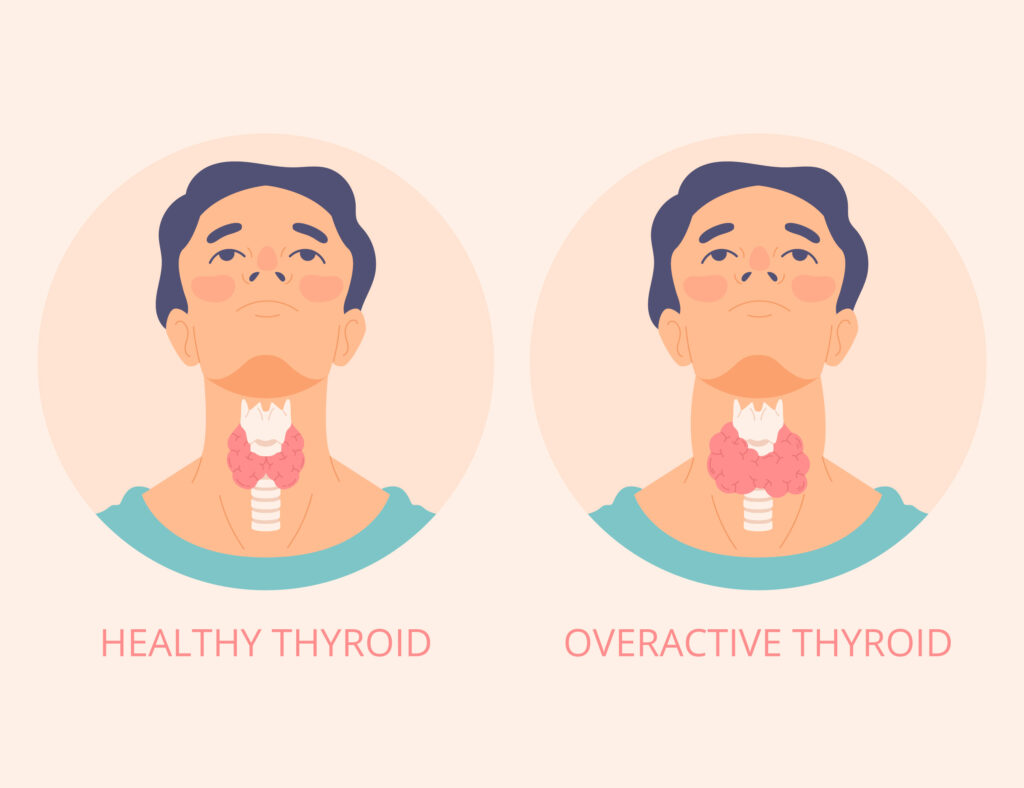Treatments Hormonal Imbalances Thyroid Disorders

Understanding Thyroid Disorders: A Comprehensive Overview
Thyroid disorders are curable; at DR. SINGH’S HOMEOPATHY several hypo and hyperthyroid patients have been completely cured and now they are living a completely normal life without any medication.
Thyroid disorders have become increasingly prevalent in modern society, affecting millions of people worldwide. The thyroid gland, a small butterfly-shaped organ located in the neck, plays a crucial role in regulating our metabolism, energy levels, and overall well-being. When this delicate balance is disrupted, it can lead to a variety of thyroid disorders, each with its own set of symptoms and implications for health. In this article, we will explore the different types of thyroid disorders, their causes, symptoms, and available treatments, shedding light on this often-misunderstood topic.
Types of Thyroid Disorders:
The thyroid gland can be subject to various abnormalities, including hyperthyroidism, hypothyroidism, thyroiditis, and thyroid nodules. Let us delve into each of these conditions:
Hyperthyroidism occurs when the thyroid gland produces an excess of thyroid hormones, primarily thyroxine (T4) and triiodothyronine (T3). This condition accelerates the body’s metabolic rate, resulting in symptoms such as weight loss, increased heart rate, irritability, heat intolerance, and anxiety.
Conversely, hypothyroidism arises when the thyroid gland fails to produce an adequate number of thyroid hormones. Common symptoms include fatigue, weight gain, cold sensitivity, depression, dry skin, and hair loss. Hypothyroidism is often caused by an autoimmune disease known as Hashimoto’s thyroiditis, but it can also result from other factors such as iodine deficiency or previous thyroid surgery.
Thyroiditis refers to the inflammation of the thyroid gland, which can lead to temporary hyperthyroidism, followed by a phase of hypothyroidism. This condition can be caused by viral or bacterial infections, autoimmune disorders, or postpartum complications. Symptoms may include neck pain, fever, fatigue, and an enlarged thyroid gland.
Thyroid nodules are abnormal growths or lumps that form within the thyroid gland. While most nodules are benign, some can be cancerous. Most nodules do not cause noticeable symptoms but may be detected during a routine physical examination or imaging tests. If nodules become large or cancerous, they may cause difficulty swallowing, voice changes, or neck discomfort.
Causes and Risk Factors:
Several factors contribute to the development of thyroid disorders. These include:
Conditions such as Hashimoto’s thyroiditis and Graves’ disease, where the body’s immune system mistakenly attacks the thyroid gland, are common causes of thyroid disorders.
Inadequate intake of iodine, an essential mineral required for thyroid hormone production, can lead to the development of thyroid problems, particularly hypothyroidism.
Thyroid disorders often have a genetic component, making individuals with a family history of thyroid problems more susceptible to developing similar conditions.
Exposure to high levels of radiation, whether from medical treatments or environmental sources, increases the risk of thyroid disorders, particularly thyroid cancer.
Treatment Options:
The treatment approach for thyroid disorders depends on the specific condition and its severity. Here are the common treatment options:
In cases of hyperthyroidism, medications such as antithyroid drugs may be prescribed to inhibit the excessive production of thyroid hormones. Conversely, hypothyroidism is typically managed through synthetic hormone replacement therapy, where synthetic thyroid hormones are taken to restore hormone levels. These medications are to be taken by the patient throughout life but in Homeopathy; Thyroid disorders are curable; at DR. SINGH’S HOMEOPATHY several hypo and hyperthyroid patients have been completely cured and now they are living a completely normal life without any medication.
Radioactive iodine therapy is a common treatment for hyperthyroidism and certain types of thyroid cancer. The radioactive iodine is taken orally, and it selectively destroys the overactive thyroid cells or cancerous cells while minimizing damage to surrounding tissues.
In some cases, surgical removal of part or all the thyroid gland may be necessary. This option is often considered for patients with thyroid nodules, large goitres, or thyroid cancer.
Conclusion:
Thyroid disorders encompass a range of conditions that can significantly impact an individual’s health and well-being. Understanding the different types of thyroid disorders, their causes, and available treatment options is vital for early detection and effective management. If you suspect you may have a thyroid disorder or are experiencing concerning symptoms, you can contact DR. SINGH’S HOMEOPATHY through proper channels; we have treated countless patients and have improved their life.

